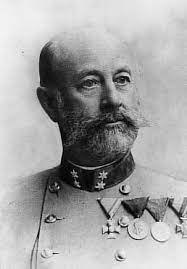Ratzenhofer, Gustav

Bio: (1842-1904) Austrian sociologist. Gustav Ratzenhofer did not have a formal education in the social sciences, nor was he associated with any scientific institution. He graduated from the higher military school in Austria-Hungary and spent almost his entire life in active military service. He acquired the field marshal-lieutenant title and served as president of the Military Court in Vienna. Before he began to study sociology, Ratzenhofer wrote several works on military history and strategy and the political nature of the Habsburg monarchy. Together with his compatriot Gumplowicz, he is the most famous representative of the so-called Austrian School of Conflict sociology. Apart from Gumplowicz, Ratzenhofer's ideas were most influenced by Comte's positivism.
Ratzenhofer thought that, in the epistemological sense, there is no difference between natural and social sciences. He thought that human behavior could be predicted, just as natural phenomena could be predicted. All empirical social phenomena follow laws (unifying principle of thought and action), and sociology has the task of discovering those laws. He called his epistemological approach "positive monism". All social phenomena are imbued with one unifying principle, so for their study, it is necessary to apply positive monism in order to detect sociological regularities. The laws that exist in the universe make this a unifying principle. Sociology should empirically study regularities, not exceptions. The ultimate goal of sociology should be the ability to predict and control social phenomena. He believed that free will had very little influence on social events. On the other hand, he believed that innate interests, which exist in every individual, decisively influence social processes.
The original power (Urkraft) is a source of social behavior, that is, instincts or innate interests. Ratzenhofer singles out the following innate interests: 1) pro-creative interest - it is based on biological sexual impulse and represents the basis of social structures of family, tribe, and race; 2) physiological interest - the need for food and biological self-preservation; 3) individual interest - biological interests that an individual strives to satisfy in society; 4) social interest - represents the expansion of pro-creative interest and individual interest, because the survival of the individual depends on the interaction within society; 5) transcendental interest - arises as a consequence of the struggle between individual and social interest and refers to the intellectual relationship to transcendental things, and is most often expressed through religious teachings.
In Ratzenhofer's interpretation, interests represent a combination of biological needs and a rational response to the awareness of the existence of those needs. In that sense, interests have a biological, but also a conscious (rational) component. For Ratzenhofer, every interaction in society is the result of the modification of evolutionarily acquired innate instincts. Ratzenhofer sees society, not as a whole, but only as a set of reciprocal social relations between individuals, and the relations themselves are always based on the pursuit of interests. He defines society in a dynamic sense (as a process). The basis of understanding society is the notion that intra-social conflicts, between different groups, are the basic driver of social processes.
Ratzenhofer created his evolutionary scheme. In the beginning, in the natural state, there was absolute enmity between individuals, due to the struggle for survival. Kinship-based communities made it possible to eliminate hostilities because they had economic cooperation. The territorial expansion of the population across the planet gave rise to racial differentiation. Rival communities, of different races, clashed, and the struggle always ended in one group overpowering the another. When the conquering group started using the defeated group for economic exploitation, then come about the relationship of domination, and consequently, social organization and the state emerged. The function of the state is to maintain a balance between the process of differentiation and the process of socialization. With the evolution of the conquering state, a "cultural" state emerged, marked by peace, creativity, and freedom. The end of social evolution is a state in which humanity will be led by an intellectual and moral elite that will achieve political, cultural, and social equality. Although Ratzenhofer emphasized the need for mutual cooperation, he still believed that wars between states strengthen the social structure and strengthen power. Although society strives to reconcile individual and group interests, the causes of social conflicts will continue to exist.
Fields of research
Conflict Domination Exploatation, Economic Evolution Freedom Free Will History Instincts Kinship Personality Race Rationality Sex State Tribe WarMain works
Wesen und Zweck der Politik (1893);
Die Sociologische Erkenntnis (1898);
Der positive Monismus und das einheitliche Princip aller Erscheinungen (1899);
Positive Ethik (1901);
Die Kritik Des Intellects: Positive Erkenntnistheorie (1902);
Soziologie: Positive Lehre von den menschlichen Wechselbeziehungen (1907).
Works translated into English:
Sociological Knowledge: The Positive Philosophy of Social Life (1975, in German 1898).

